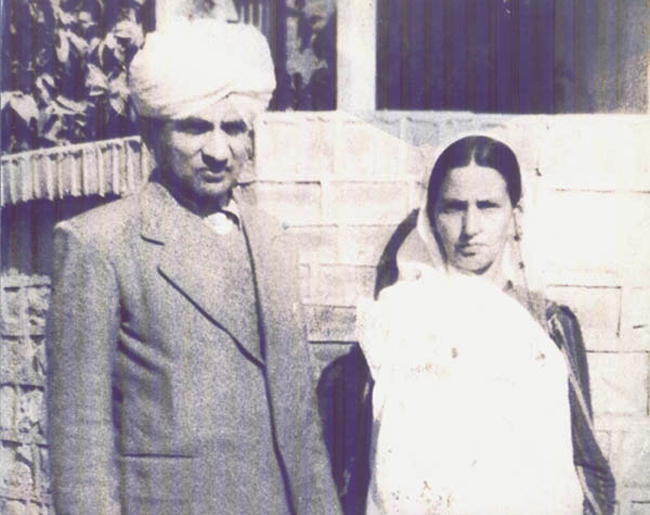Tathya & Kakni
 |
|
Tathya & Kakni The Two Blessed Souls -Gopinath Raina |
|
There are parents and there are parents; some are, as human psychology would normally warrant, loving, caring, compassionate, understanding and committed. Some get lost in the labyrinth of blind love, leading to spoilt and pampered children; some others, for unknown reasons, discriminate between one or the other and still others completely neglect the mental and emotional development of their offspring.
Ideal parents normally belong to the first category-loving, caring and bent on playing the important part in nurturing and bringing up their children; they serve as positive role models for them and at the same time develop in them moral and spiritual values of life. They also strive to create a social environment for them where the concept of family extends into the community at large. Sweet Memories My subjects of this write-up, Revered Tathya and Kakni, belong to this category. When you grow old what sustains you and even gives you immense pleasure and gratification are the sweet memories of parents, grandparents and of all those elderly people in joint families who played significant role in your life’s journey. At this distance of time, I feel proud and honored to have been blessed with ideal parents as also ideal parents-in-law. Both raised their children with love and devotion and taught them how to live their lives. The two sets of parents, mine as well as that of my wife's, were great human beings, to say the least. If my revered mother, we called Ded, was a saintly person, so was my mother-in-law, we called Kakni. Similarly, my father, Bub and my father-in-law, Tathya, both were really gentle and noble souls, balanced, straightforward, dignified and farsighted. Their relationship was like father and son due to their age difference. While I was the youngest child of my parents, my wife was the eldest child of hers. Their Progeny Revered Tathyaji and Kakni were blessed with two beautiful, loving, obedient, well-mannered, intelligent daughters, Chuni and Dulari. Both were good at studies and in the times they grew up, thel education of girls was not much in vogue. But they did undergo College education. While the elder sister, Chuni, graduated from the City’s Sri Pratap College, the younger one, Dulari, studied only up to Intermediate due to ill-health.. |
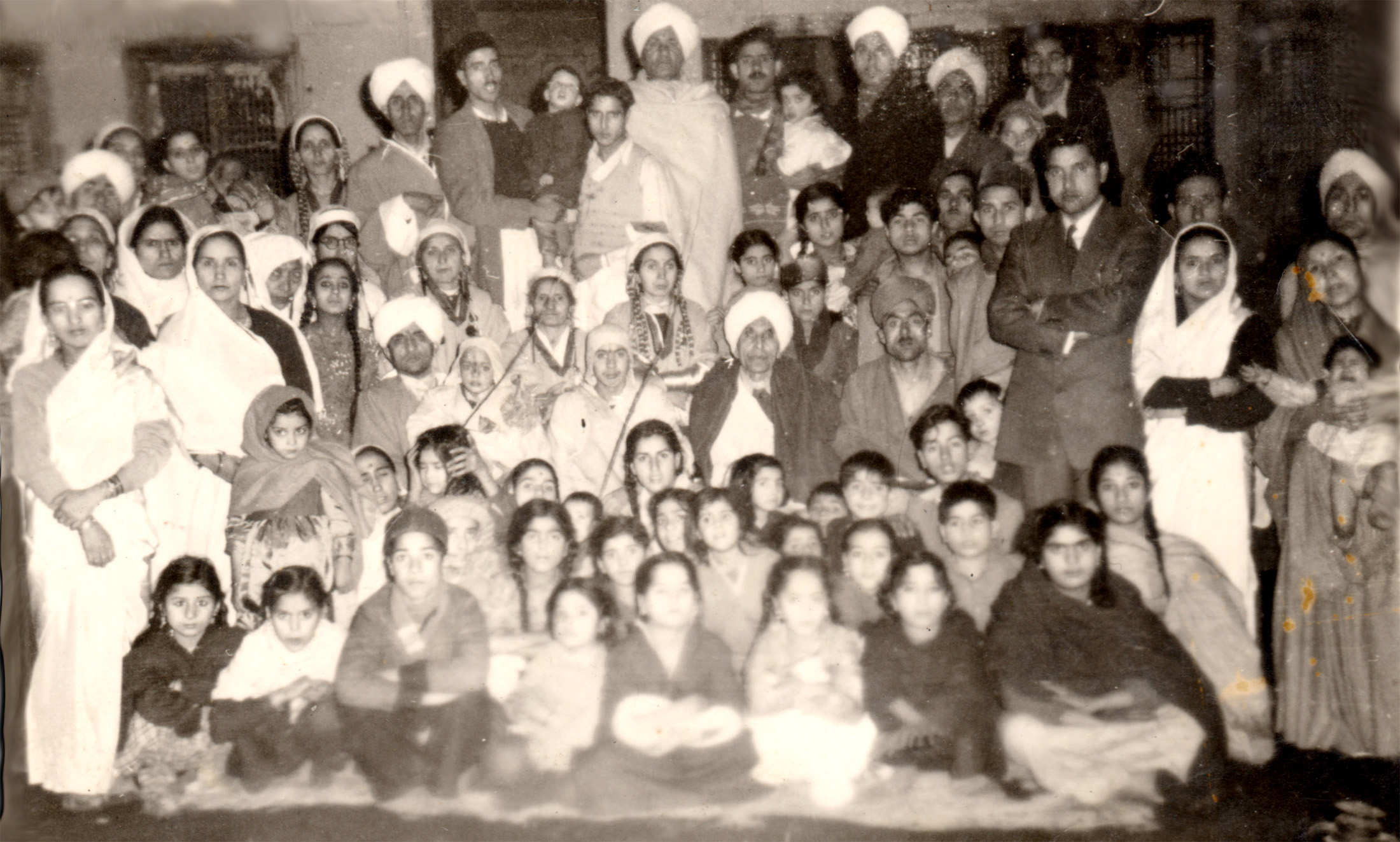 Prominent persons seen in this pic are: Pt. Prakash Ram Ganju (Tathiaji), Gunwati (Kakniji), Pt. Sudarshan Raina, Chuni & Gopi Raina, Raj Dulari & Mohanlal Handoo. Prominent persons seen in this pic are: Pt. Prakash Ram Ganju (Tathiaji), Gunwati (Kakniji), Pt. Sudarshan Raina, Chuni & Gopi Raina, Raj Dulari & Mohanlal Handoo. |
|
They married off their eldest daughter to me in Srinagar on November 1, 1947, at a time when tribal invasion on Kashmir from across the Pakistan border had assumed ugly proportions. The Indian army was fighting the invaders barely 4 to 5 miles away from the venue where our auspicious wedding ceremony was performed. Nuptial mantras were being chanted amid the sound and fury of the exchange of gunfire between the Indian troops and thei invading forces. Since the invaders had plunged the war-torn city of Srinagar into complete darkness by snapping the supply of electricity from its source, the Mohra Power House, me and my wife had to spend our first-ever night together under candlelight in which we were hardly able to recognize each other’s faces. Yet, the night was blissful inasmuch as it transformed our solitude into unforgettable moments and filled the recesses of our hearts with lots of love and ineffable joy. For all the newly-weds like us during that politically tumultuous period, it was a romance on the battlefront. There was no honey nor any moon, for the night belonged to the dark half of the lunar month of Kartik when moon rises in the sky for an insignificantly brief period. Adopt Grandson In the prevailing socio-religious milieu, parents with no male heir looked for adopting one, if only to perpetuate family name and to perform the last rites at the time of death. As soon as their first grandson, Deepak,, was born in Shimla on February 1, 1952, they put forward the demand for adopting him as their only son. |
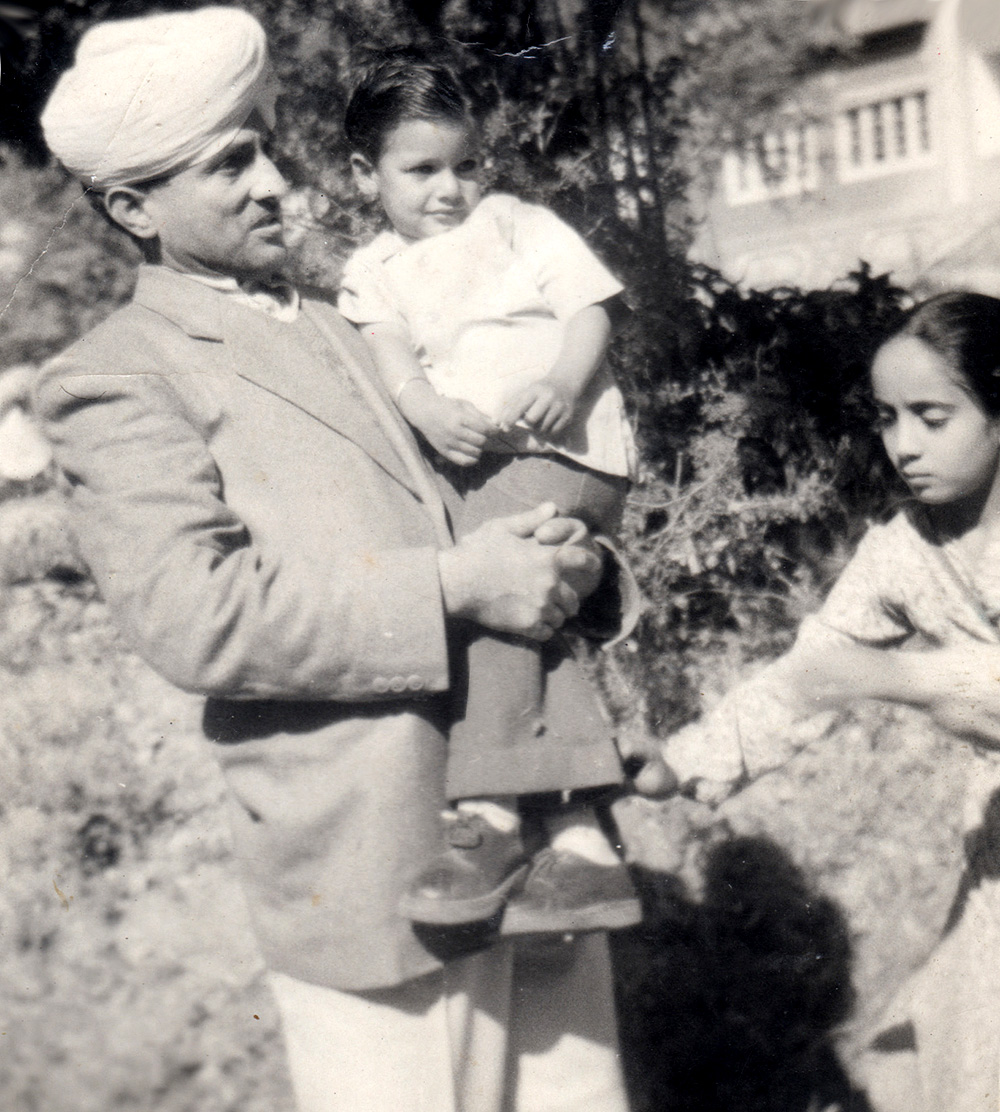 |
|
A commitment was made to give over the next male child that happened only five years later in 1957. The newborn, Ravi, was offered as promised, but Tathyaji renewed his earlier demand for Deepak. And he solicited the support of my father in this respect, knowing well that I would not dare oppose my father’s command. My father worked out a compromise under which me and my wife, Chuni, Tathyaji’s obedient daughter agreed to. Deepak would adoptTathyaji’s family name but would continue to live with us. Thus, while Deepak Raina became Deepak Ganju at the age of five, he continued to be with us all the while fulfilling the ardent wish of his birth mother to have him alone perform her last rites. It so happened that she died of cancer in Miami within 40 days of her coming to see Deepak’s family.
Upanayana Samskara As if to put a social seal on adoption, Tathyaji performed a great Yagnopavit ceremony in October 1957 in Srinagar in which Deepak and his cousin received initiation into the great Gayatri Mantra from their Kulguru, the family preceptor, Pandit Govind Joo Khuroo. |
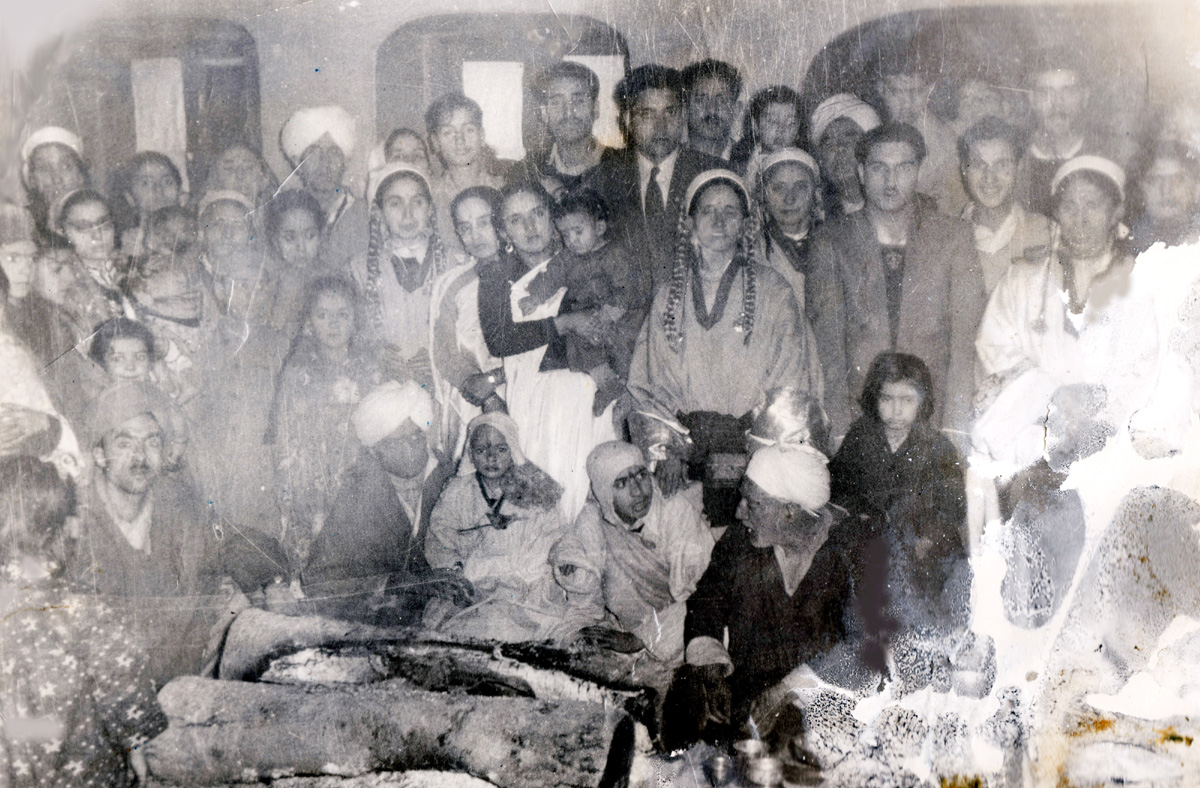 |
|
According to the Grihya Sutras, a Brahmana needs to be invested with the Yajnyopavit, known as MEKHALA in the Kashmiri Pandit religious ethos, by the early age of five when one is matured enough to understand the alphabet, word and sentence and can figure out the numericals and can go in for creative works. It forms the integral part of being a Brahmana in the real sense of the term.
The three strings of the Yagneopavita refers to the three facets of the Gayatri, which are the Three sounds of AUM put together to make it monosyllabic. Gayatri Mantra “Om Bhur Bhuvah Swah Tat Savitur Varenyam Bargo Devasya Dheemahi Dhiyo Yo Na Prachodayat” is a prayer to seek all wisdom and common sense. During the Samskara, Yajnopavit is put on while recitng the following mantra: “Om Yagneopavitam Paramam Pavitram Prajapatir Yat Sahajam Purastad. Ayushyam AgryamPrati Muncha ShubramYajneopavitam Balam Astu Tejah”’ And so it was for Deepak. Saintly Kakni
Mild-mannered, soft spoken and noble, respected Kakni never bore ill-will against anyone. Never would any harsh word flow from her lips, not even while chastising errant children. Tolerant to the core, always smiling and forgiving, ever compassionate, she would wish everyone well and render whatever help, material or otherwise, was needed. The name given to her by parents was Gunawati, meaning virtuous and this one word aptly descriibed her personality. |
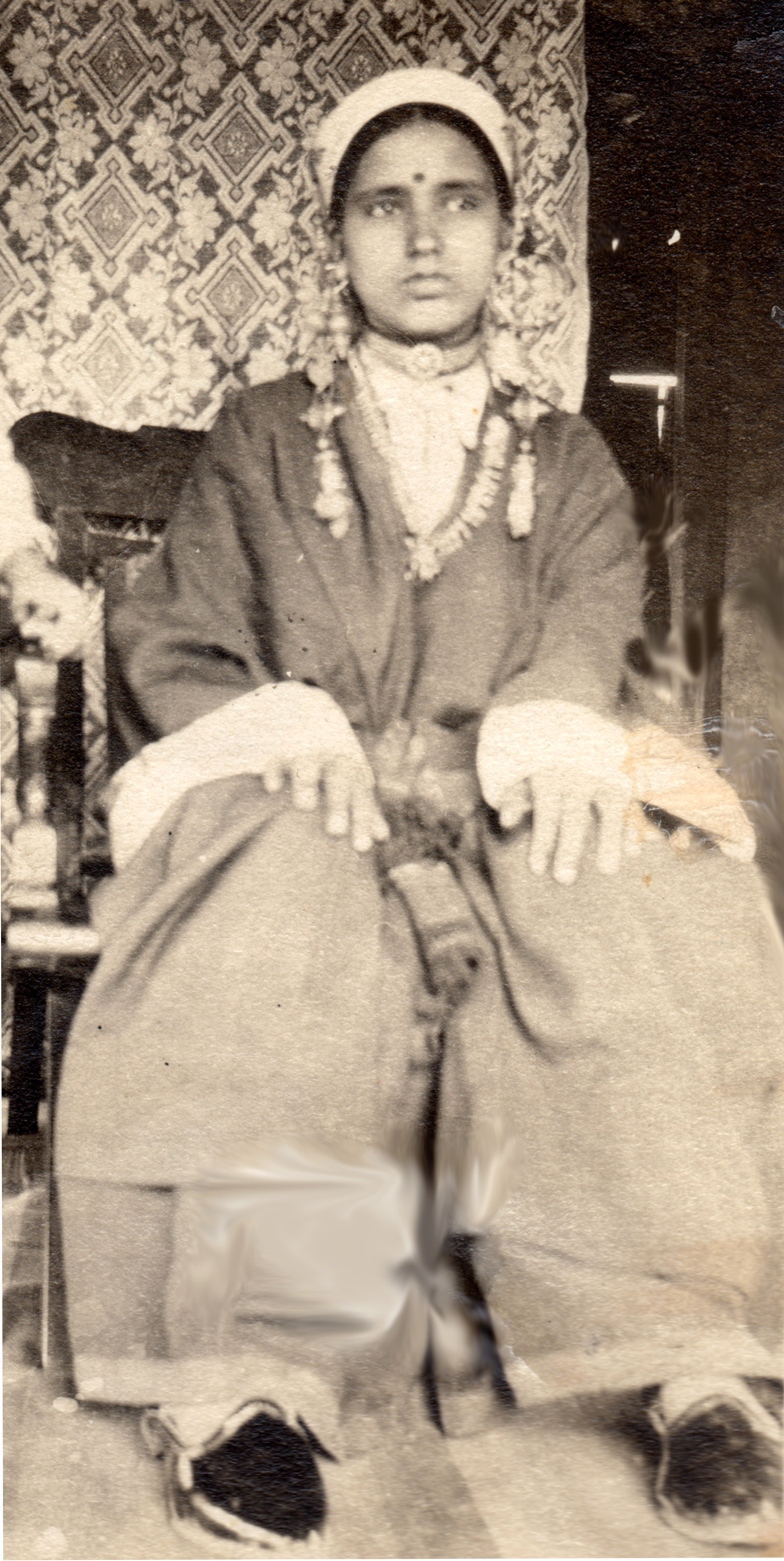 |
|
She served the joint family from morning to evening selflessly. She would do all domestic chores single-handed, prepare breakfast, lunch and dinner for all members of the large family of eleven members. And she would be the last to feed herself.
Deeply religious at heart, revered Kakni had no time for God as such and would rarely visit the Thakur Kuth (room reserved for ritualistic worship). Not that she was a non-believer. Perhaps she did not need all that because she seemed to have had inherently imbibed the true spiritual quality of being good, of doing good and of thinking good. Even then, I have observed her doing mental Japa of the name of Sri Ram silently. It won’t be an exaggeration to say that our respected Kakni was a truly evolved soul. Not a day goes by when Deepak and I do not think about her. We simply remind ourselves with wonder how the mild-mannered Kakni would react to occasional bouts of Tathyaji’s anger with her usual disarming smile. As years went by, their children, two daughters and their spouses, their son and his family, could better understand their apparent diverse temperamental approaches and recall with pride their sane advice from time to time, their sound wisdom, of course not excluding many a difference on certain family issues. Unassuming to the Hilt Not to have an ego is one thing and to be egoistic is another. Revered Kakni was not at all egoistic. I would rather say that like accomplished saints of highest order, her humility was exemplary. In short one could say without any fear of contradiction from any quarter that she was completely free from even a semblance of an ego. So unassuming was she that for almost a decade after my marriage, I did not know, rather could not know, that she was my mother-in-law. The reason was obvious. Though she was the wife of the head of the house-hold, the real authority in the entire family unit was wielded by none other than the widowed elder sister of my father-in-law who was respectfully called Ded. As was customary in joint families in those times, the eldest member would rule the house. And the person who qualified for the role was Ded who lived with her loving brothers after becoming a childless widow..And it was she who virtually ruled the entire household. On every first of the month Tathyaji would hand over his entire salary to her and then ask forr some money for his personal use. For ten long years, therefore, I had the impression that the said lady, who happened to be my wife’s eldest aunt, was my mother-in-law. For it was she and she alone, who would receive me whenever I visited the in-laws. It would be only she who would sit by my side along with my father-in-law and even serve me tea or food.
Revered Kakni’s busiest schedule would not allow her to meet or exchange greetings with any visitor, even a relation or a friend. Ostensibly, Kakni was not allowed to meet me or serve me even with tea. Incredible as it may seem, I had not had the good fortune of having seen, leave alone being introduced to the ever humble Kakni till the death of the said aunt. Humane & Pragmatic A warm-hearted person of noble disposition, generous to the core, wise and pragmatic, Tathyaji, was an able and a highly competent professional in the huge Forest Department of Jammu & Kashmir State. Conservators of Forests of his time would consult him on all matters, technical or otherwise, though he was only the senior-most administrative officer. |
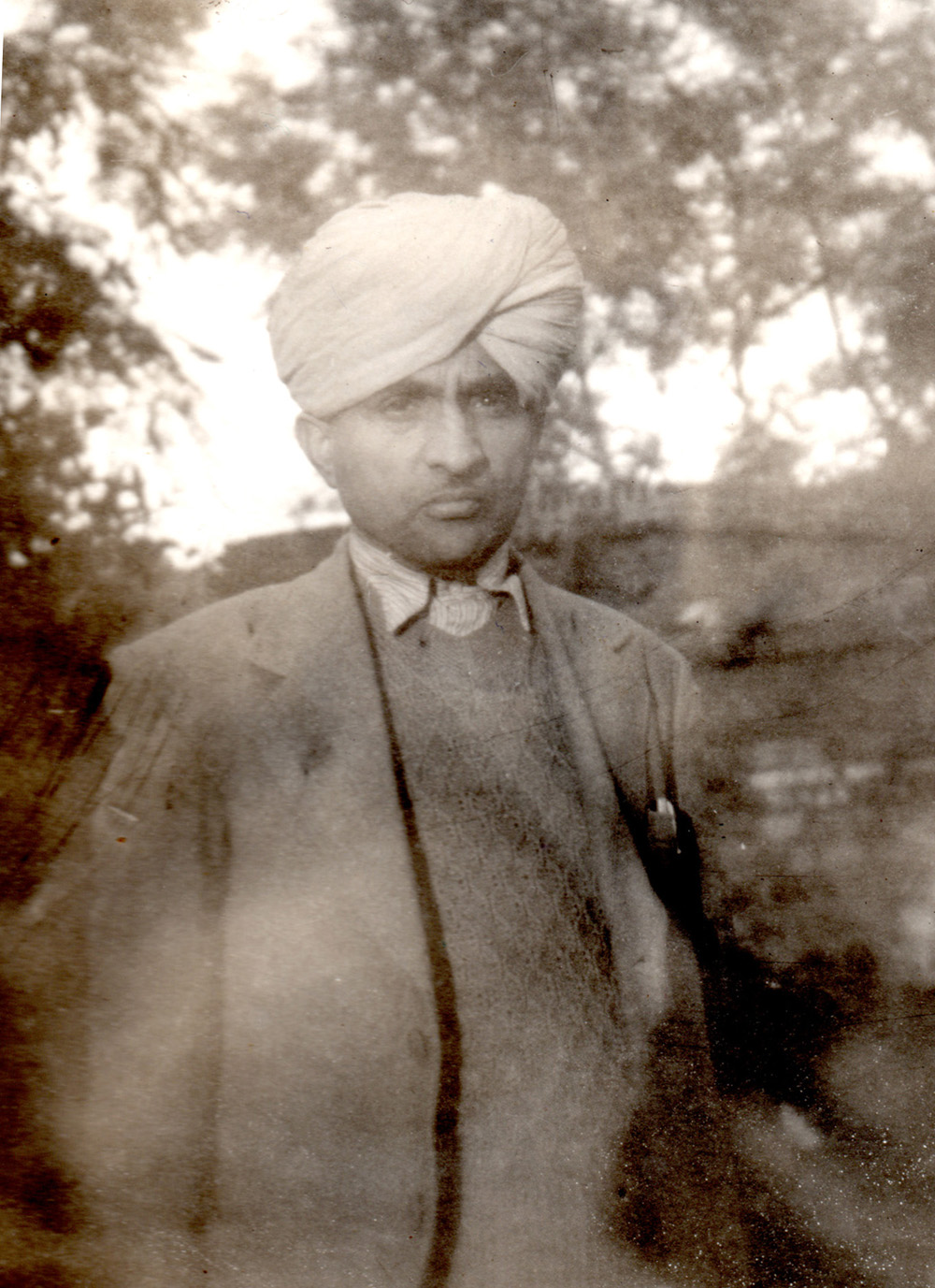 |
|
A man of pleasant manners, vibrant and full of zeal, Tathyaji was quite humane. He was very sensitive to the suffering and difficulties of others. Believing as he did that acquisition of knowledge is what makes a human being perfect, he wanted all children to get good education. He ensured his own children complete college education and even go for post-graduation and higher studies. He would even spend money on education of poor children in his neighborhood. He was particular that no one suffers from lack of proper education for want of money. He always wanted and tried to help the needy and the deserving. Human nature as it is, people around, including the relations, exploited this helpful nature of his.
He did not stop working to earn for his family even after retirement. A man of active temperament that he was, he took to several businesses with limited success, mainly because he trusted all sorts of people. His innate respectful nature was not limited to his elder sister only but to all who happened to be older to him in office, in the neighborhood or among the relations. He always showed a very high regard for my father, who was twenty one years older than him. Not merely content with touching his feet, he would go to the extent of even washing the feet of my father daily in the mornings when my parents stayed with him during his posting in Jammu region. Ardent Devotee of Kali 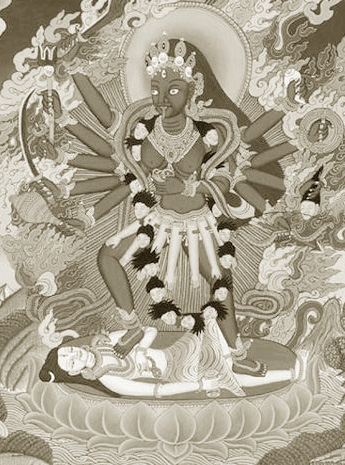 Polite, yet firm, Tathyaji was a god-fearing man. Though by temperament he was an ardent devotee of Goddess Kali, he would regularly walk three to four miles to Hari Parbhat, the abode of goddess Sharika, for daily darshan. Polite, yet firm, Tathyaji was a god-fearing man. Though by temperament he was an ardent devotee of Goddess Kali, he would regularly walk three to four miles to Hari Parbhat, the abode of goddess Sharika, for daily darshan.I shared his weakness for contemporary saints like Sobur Sheikh of Kangan, Kashkak of Manigam and mystic Nandlalji of Srinagar. The philosophy that guided him was to know more about the world and lessen the sufferings of others. He would often visit Kangan to see the great Muslim sage, who, though blind, was a source of solace to many a devotee who thronged him day and night. We paid many a visit together to Manigam saint, Kashkak and Nandlalji in Srinagar. Exit & Rebirth The two blessed souls left this world in a space of one and a half year. While the beloved Kakni breathed her last in December 1974, Tathiaji left his mortal frame in June, 1976, leaving behind their only son, Deepak, the two daughters, CChuni and Dullari,, two sons-in-law, myself and Mohanlal Handoo and eight grandchildren, Reeta, Ravi, Poonam, Aditi, Akshay, Jyoti, Archana and Ashutosh. As an ardent believer in the theory of re-incarnation, I have some unearthly evidence of Tathyaji's rebirth as my grandson or should I say as his own grandson. What follows is how this phenomenon revealed itself. It was the summer night in Delhi in the month of April, 1983, when I saw Tathyaji in my dream, almost eight years after he had breathed his last. I remember the dream sequence to the very last letter as has been usual with me. What I saw was Tathyaji coming to our new house in New Delhi. It was a DDA flat in a South Delhi locality of Munirka Vihar that had been allotted to me by the Delhi Development Authority (DDA). Without remembering at the moment that he was no more in this physical world, I asked Tathyaji as to where he had been for so long. He replied that he had been to Bombay and was now on his way back to Srinagar. He did not accept my request to stay with us for some time before he could leave for Srinagar, saying that he had to reach there on November 23 without fail due to an urgent appointment. At this stage I woke up from my slumber. In the morning at breakfast time, I narrated the entire dream to my wife. I told her that her father appeared to me in the dream and seemed in a hurry to reach Srinagar. Hearing this, she went into a deep thought. I asked her the reason for her serious look. She said “you know dear Chandrai, Deepak’s wife, is in a family way. It is most probably her second month.” As soon as this news trickled in, the astrological instinct in me made me believe that our daughter-n-law would deliver a baby boy on the day mentioned in my dream. I wrote to Deepak accordingly. It was only after the baby boy was actually born on November 23 that I told Deepak about the bizarre dream. We all believed that Tathyaji had taken rebirth. And what is more, Tathyaji whose dream of making his two daughters take to medicine has been fulfilled by him in this life by becoming a Doctor himself. He is none other than my grandson, Dr. Nihar Ganju, and the grandson by spiritual lineage of Tathyaji and Kakni. And that is how life goes on from one birth to another in the Divine Plan of this universe. |
|
|
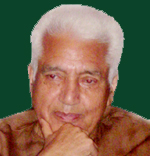 *A journalist by profession, a scholar by temperament and a writer by choice, Gopinath Raina was inclined to study of religion from very young age. It was Vivekananda’s dynamic exposition of Hindu thought that fired his imagination while he was still at school. By the time he entered college, he had been drawn to the writings of Gandhi, Aurobindo, Narayana Guru, Radhakrishnan and Bertrand Russell. *A journalist by profession, a scholar by temperament and a writer by choice, Gopinath Raina was inclined to study of religion from very young age. It was Vivekananda’s dynamic exposition of Hindu thought that fired his imagination while he was still at school. By the time he entered college, he had been drawn to the writings of Gandhi, Aurobindo, Narayana Guru, Radhakrishnan and Bertrand Russell.After retiring from Indian Information Service in 1983 after completing 35 years as an editor and a correspondent in All India Radio, he edited AICC Journal, Varnika, (Jan.'84-Dec.'90), Koshur Samachar (March '91-Oct '95), Sanatana Sandesh,(1997-2005) and KASHEER (2003-2004), He has since been writing on various aspects of Hindu thought, particularly on saints and sages. Presently he lives in Miami spending his time writing personal memoirs. |
|
|
